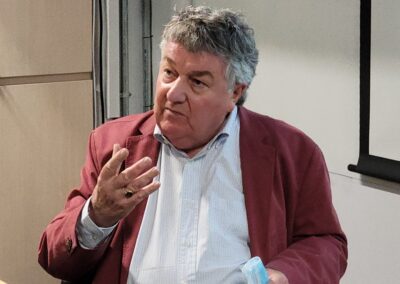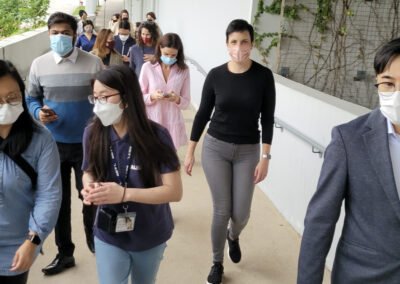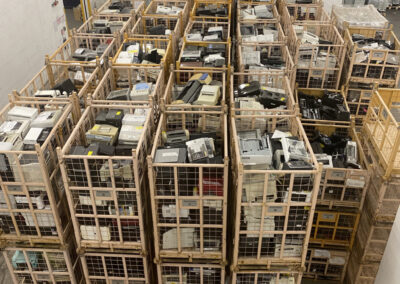WEEE • PARK, the reversed factory
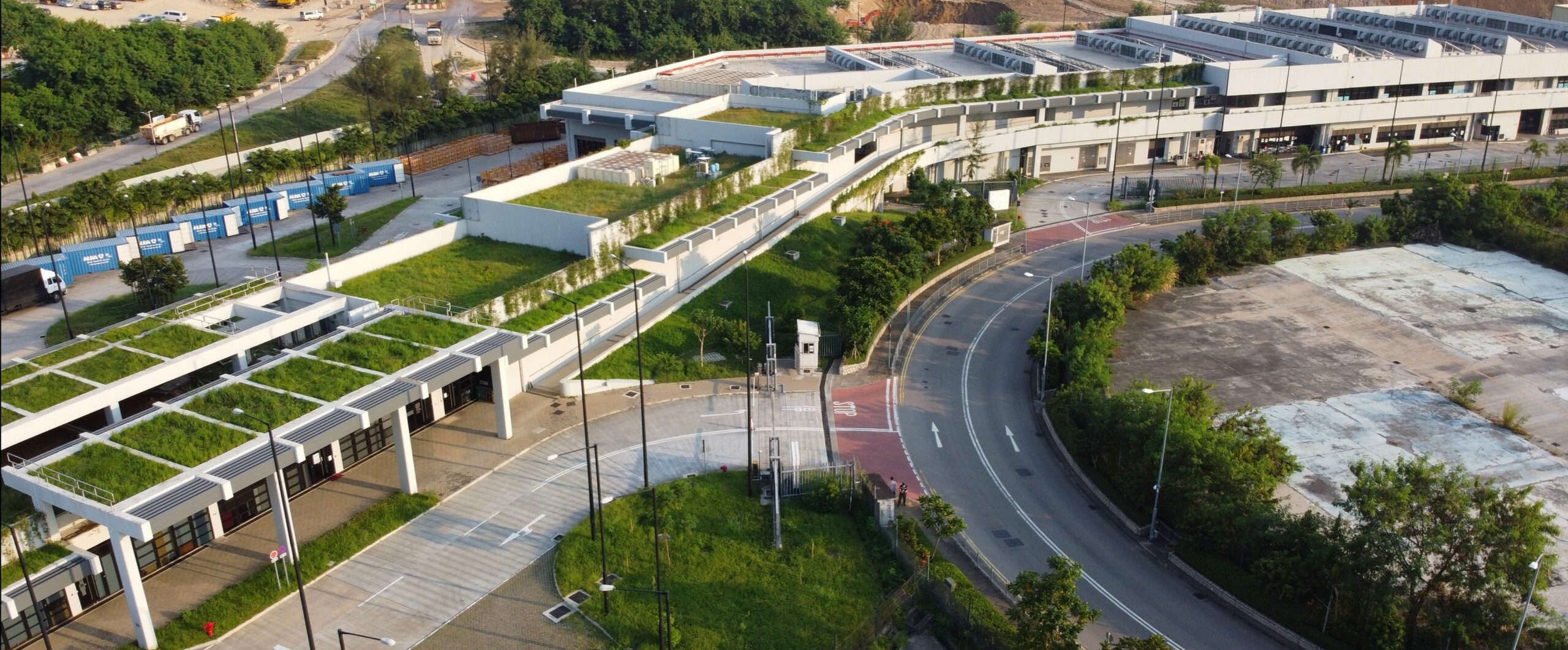
In late 2022, our changemakers were invited at WEEE • PARK, Hong Kong’s first integrated e-waste transformational facility, to uncover the backstage of the circular economy applied to e-waste. Nigel Mattravers, Managing Director of ALBA Integrated Waste solutions who runs the facility, shared his expertise about e-waste recycling and circular economy with our group in an in-depth conversation. Read here his main key takeaways on different leads our conversation followed.
Choked on e-waste
“In 2019, Hong Kong produced 153,000 tonnes of e-waste or about 20kg per person. Hong Kong has one of the highest e-waste generations per person on the planet. E-waste contains a lot of components – such as heavy metals (mercury, lead…) or greenhouse gases – that are very harmful to the environment and human health. They are mixed with valuable resources like copper, aluminum, iron… even gold. In Ghana, people set fire to e-waste to get access to reusable resources. At WEEE • PARK, we remove and secure toxic substances, and turn other parts into high-quality materials for reuse in industrial productions. We are a reversed factory.”
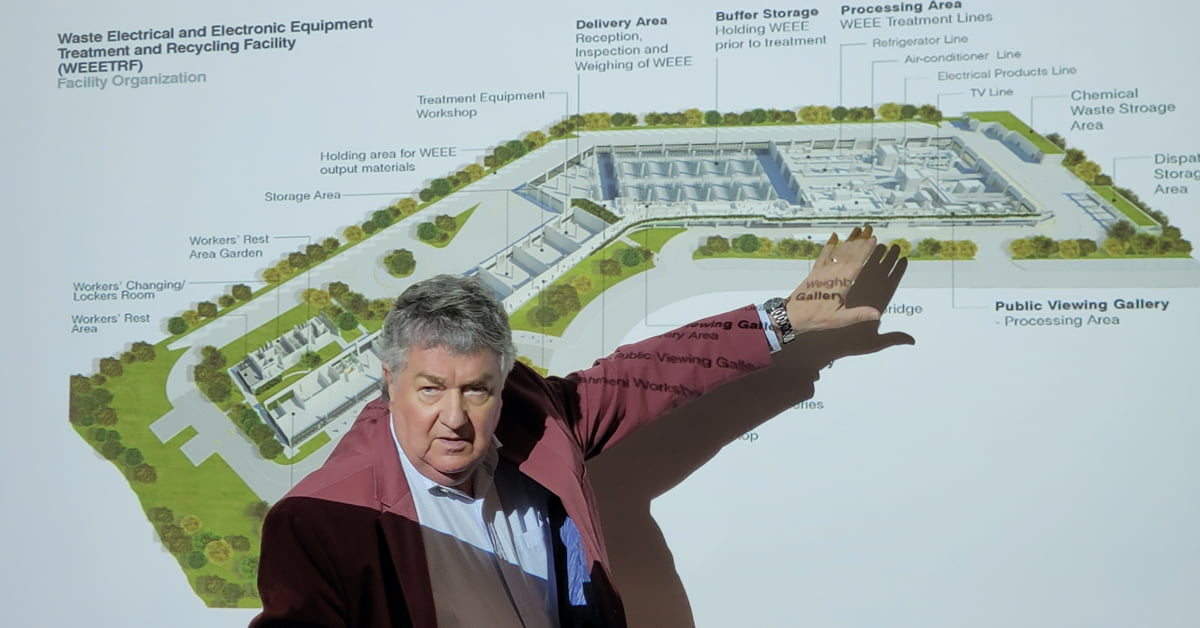
WEEE • PARK? A Rolls Royce!
Nigel: “The WEEE • PARK is a Rolls Royce in terms of e-waste facility. Designed by an architect the facility has many green features, like green walls with hardy native climbing plants. Our photovoltaic panels heat water, a harvesting system collects rainwater. 30% of our surface has green coverage. We tag, take a picture and weigh each item before being processed.”
Refurbish, recycle, educate
Nigel: “30% of the items we collect still work. People don’t know how to defrost a refrigerator! Our 5 qualified electricians oversee refurbishing and testing. Amongst the 3 million we have processed so far, we have donated 3,000 items to people in need or NGOs. We work with social services. We could be doing a lot more, but we have some limitations. We treat 30,000 tons of e-waste annually. There is room for more recycling capacity in Hong Kong. Education on circular economy is an important part of our mission. 13,000 visitors have come so far: primary schools, elderly, housing estate residents, etc. People must know about this exceptional service: the free door-to-door collection of regulated e-waste in the 3 days following their call.”

Do I need a new phone?
Nigel: “What can we do as a consumer? First and foremost, don’t buy a new phone, a new TV if not needed. We must ask ourselves the basic question: do I need a new one? If you don’t want an appliance anymore, try to find someone who will want it. It’s also true for business. There is a huge difference between talking about ESG, CSR, and sustainability and getting it done. If a company got computers and TV they don’t want any more we will come to collect them directly at the office for free. We help companies make it happen.”
What about carbon emissions?
Nigel: “We achieved an 87% recycling rate, which is better than elsewhere. What was not expected by the Hong Kong government is that WEEE • PARK cuts so much carbon emissions. Even if we use a lot of electricity and fuel for our lorries, the 72,000 tons of recyclable components – iron, copper, aluminum, and plastics – we recovered since the launch represent more than 235,000 tons of carbon emissions. It’s the equivalent of the CO2 absorbed by 10 million trees.”
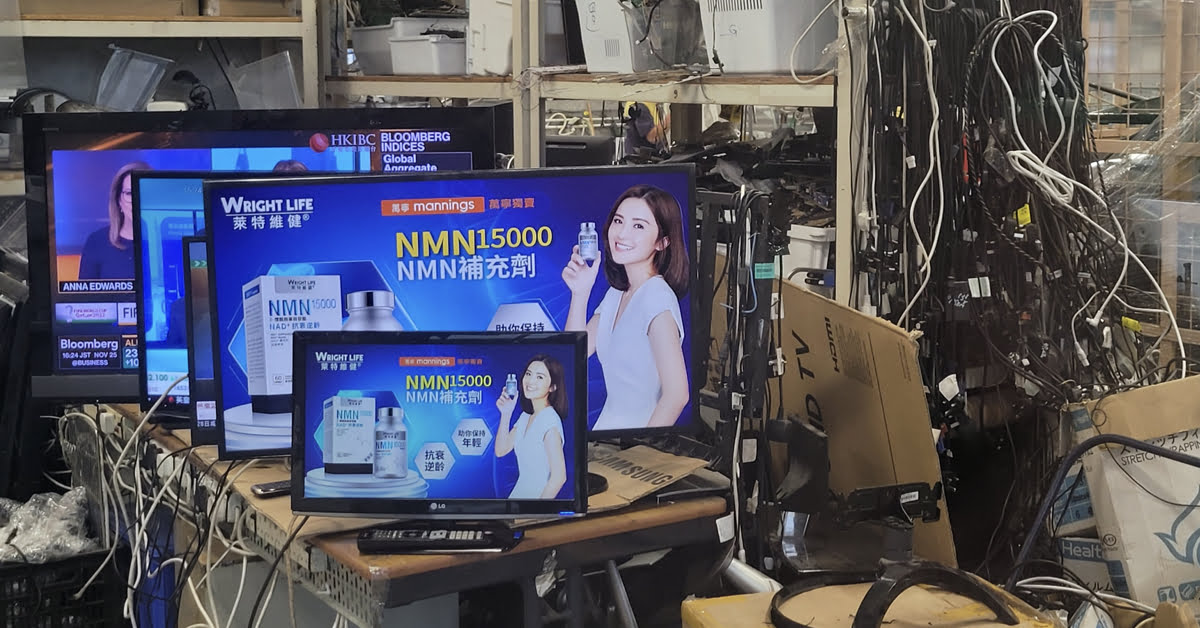
Who pays for it?
Nigel: “Sustainability and recycling equipment needs governments’ support globally. In Hong Kong, every customer pays a recycling levy when they buy a new fridge, phone, washing machine or one of the regulated electrical equipment in Hong Kong. This is how the government finances our operation fees, based on the actual weight and type of e-waste collected and treated. We also sell the recycled resources to approved off-takers that meet strict environmental criteria. It encourages us to be as efficient as possible and get the best material.”
How to move faster?
Nigel: “Sadly, legislation is key. Why is Europe ahead? Because of stricter regulations. Since 2021, spare parts for refrigeration devices must be available for 7 years after purchase and it goes to 10 years for washing machines, dryers, and dishwashers. In Germany, manufacturers have to take their products back and recycle them. It’s also a requirement in South Korea. In Europe, the landfilling of tyres is prohibited for almost 20 years and 95% are now collected and treated for material recycling and energy recovery. In Hong Kong, we still dump tyres in landfill. It’s unbelievable.”


